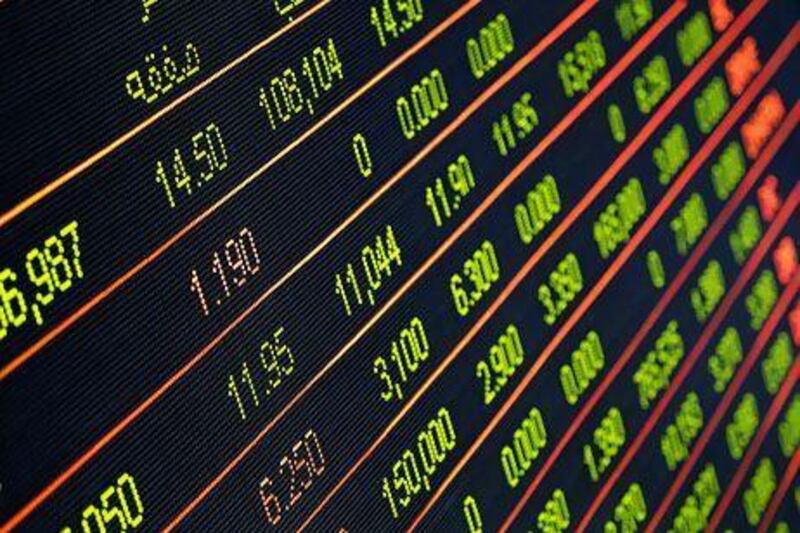Stock market trading violations increased last year as the federal regulator boosted enforcement efforts.
The Securities and Commodities Authority (SCA) uncovered 311 violations, including those related to inspection and supervision of trading, separation of accounts, defaults, financial adequacy and disclosure of financial statements or board of directors, it said in its 2012 annual report.
The SCA referred four of those cases to the public prosecutor to enhance "transaction safety on the financial markets", it said.
It did not publish the number of trading violations in its 2011 annual report. However, the 2010 report recorded 209 violations compared with 113 the previous year.
The regulator also recorded 23 cases of trading malpractices, six cases of front-running operations, 10 instances of market manipulation and one case of insider trading.
The cases have been "referred to the concerned authorities for necessary actions to be taken", the SCA said.
The regulator also "laid down rules for its employees to represent it as experts in legal cases before the courts or the public prosecution in the UAE, within the framework of cooperation with the judiciary in securities related cases".
One stockbroker and three individuals were suspended from trading on the markets, while another 10 investors were cautioned, the report said.
Unlike many developed markets, regulators here tend not to publish the names of individuals and companies who violate their regulations.
The most high-profile case came when Riad Kamal, the former Arabtec Holding chief executive, was barred in January 2011 from trading for six months after selling shares less than 10 days before making a company announcement, but that action became public only because it was leaked to the press.
The performance of the market has changed dramatically since the global financial crisis, when asset prices and volumes tumbled.
The Abu Dhabi Securities Exchange General Index has climbed 40.3 per cent this year, while the Dubai Financial Market General Index has jumped 47.8 per cent in the same period.
The boost has been supported by a raft of regulations over the past year amid an effort to protect investors and improve transparency on the financial markets.
"The regulator and the financial community has learnt a lot from the problems that occurred after the crisis," said Wadah Al Taha, the chief investment officer at Dubai-based Al Zarooni Group. "Accordingly all the weaknesses, gaps, shortfalls in reporting were covered and targeted in the auditing teams sent by SCA."
Furthermore there had been a rise of surprise "spot checks" on the brokerage firms and listed companies, he said. "The team is getting more experienced."





